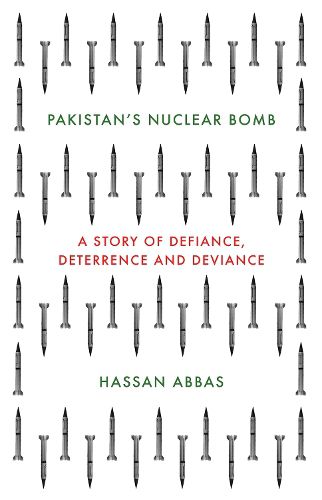Readings Newsletter
Become a Readings Member to make your shopping experience even easier.
Sign in or sign up for free!
You’re not far away from qualifying for FREE standard shipping within Australia
You’ve qualified for FREE standard shipping within Australia
The cart is loading…






This book provides a comprehensive account of the mysterious story of Pakistan’s attempt to develop nuclear weapons in the face of severe odds. Hassan Abbas profiles the politicians and scientists involved, and the role of China and Saudi Arabia in supporting Pakistan’s nuclear infrastructure. Abbas also unravels the motivations behind the Pakistani nuclear physicist Dr A.Q. Khan’s involvement in nuclear proliferation in Iran, Libya and North Korea, drawing on extensive interviews. He argues that the origins and evolution of the Khan network were tied to the domestic and international political motivations underlying Pakistan’s nuclear weapons project, and that project’s organisation, oversight and management. The ties between the making of the Pakistani bomb and the proliferation that then ensued have not yet been fully illuminated or understood, and this book’s disclosures have important lessons. The Khan proliferation breach remains of vital importance for understanding how to stop such transfers of sensitive technology in future.Finally, the book examines the prospects for nuclear safety in Pakistan, considering both Pakistan’s nuclear control infrastructure and the threat posed by the Taliban and other extremist groups to the country’s nuclear assets.
$9.00 standard shipping within Australia
FREE standard shipping within Australia for orders over $100.00
Express & International shipping calculated at checkout
This book provides a comprehensive account of the mysterious story of Pakistan’s attempt to develop nuclear weapons in the face of severe odds. Hassan Abbas profiles the politicians and scientists involved, and the role of China and Saudi Arabia in supporting Pakistan’s nuclear infrastructure. Abbas also unravels the motivations behind the Pakistani nuclear physicist Dr A.Q. Khan’s involvement in nuclear proliferation in Iran, Libya and North Korea, drawing on extensive interviews. He argues that the origins and evolution of the Khan network were tied to the domestic and international political motivations underlying Pakistan’s nuclear weapons project, and that project’s organisation, oversight and management. The ties between the making of the Pakistani bomb and the proliferation that then ensued have not yet been fully illuminated or understood, and this book’s disclosures have important lessons. The Khan proliferation breach remains of vital importance for understanding how to stop such transfers of sensitive technology in future.Finally, the book examines the prospects for nuclear safety in Pakistan, considering both Pakistan’s nuclear control infrastructure and the threat posed by the Taliban and other extremist groups to the country’s nuclear assets.